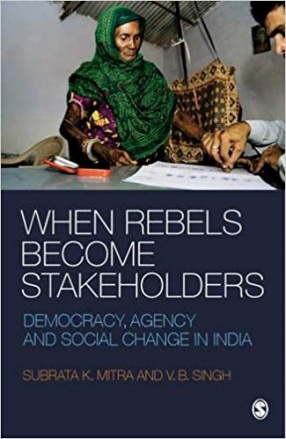When Rebels Become Stakeholders: Democracy, Agency and Social Change in India
When Rebels Become Stakeholders : Democracy, Agency and Social Change in India explores the agency of ordinary men and women in the making of democratic social change in India. The study is specific to India, but the issues that it examines are of wider significance. The authors join the debate on democracy and development on the basis of case studies that showcase the opinions and attitudes of the Indian voter. They assert that mass perception of institutions, policies and processes--so often dismissed as mere false consciousness or as the conditioned reflex of a gullible public, manipulated by the rhetoric of populist politicians--is our only window to the inner dynamics of democracy and social change.
The authors have used the public opinion data from three national surveys of the Indian Electorate held in 1971, 1996 and 2004 to focus on the political understanding of India's voters and their leaders. While agency is a much-discussed theme in contemporary social sciences, connecting the rationality of ordinary men and women to explain electoral participation and rapid structural change in the lives of people of this country is specific to this study. This book argues that the cohabitation of democracy and social change in India is not merely incidental or coincidental; rather the two are institutionally linked in a manner that is fundamentally causal, to the extent that the weakening of one renders the other ineffective.
This book would be of interest to researchers and scholars of political science, international relations, democracy, Indian politics, political analysis, sociology, development studies, journalism, comparative politics and public administration.
Contents: Preface. 1. Introduction: democracy and the puzzle of Orderly social change. 2. The context of social change: interfacing society and state in India. 3. Continuity and change in Indian politics: an Inter-generational analysis. 4. The elements of political agency and the limits of consensus. 5. Political competition, social cleavages and institutionalization of the party system. 6. Re-inventing the nation: the dialectics of nation and region in India. 7. Poverty, welfare and social opportunity in India. 8. Building social capital from above and below: locality, region and trust in India. 9. India at sixty: social change and the resilience of democracy. 10. Beyond India: democracy and social change in comparative perspective. Appendices. Bibliography. Index.
Get it now and save 10%
BECOME A MEMBER








Bibliographic information
V.B. Singh